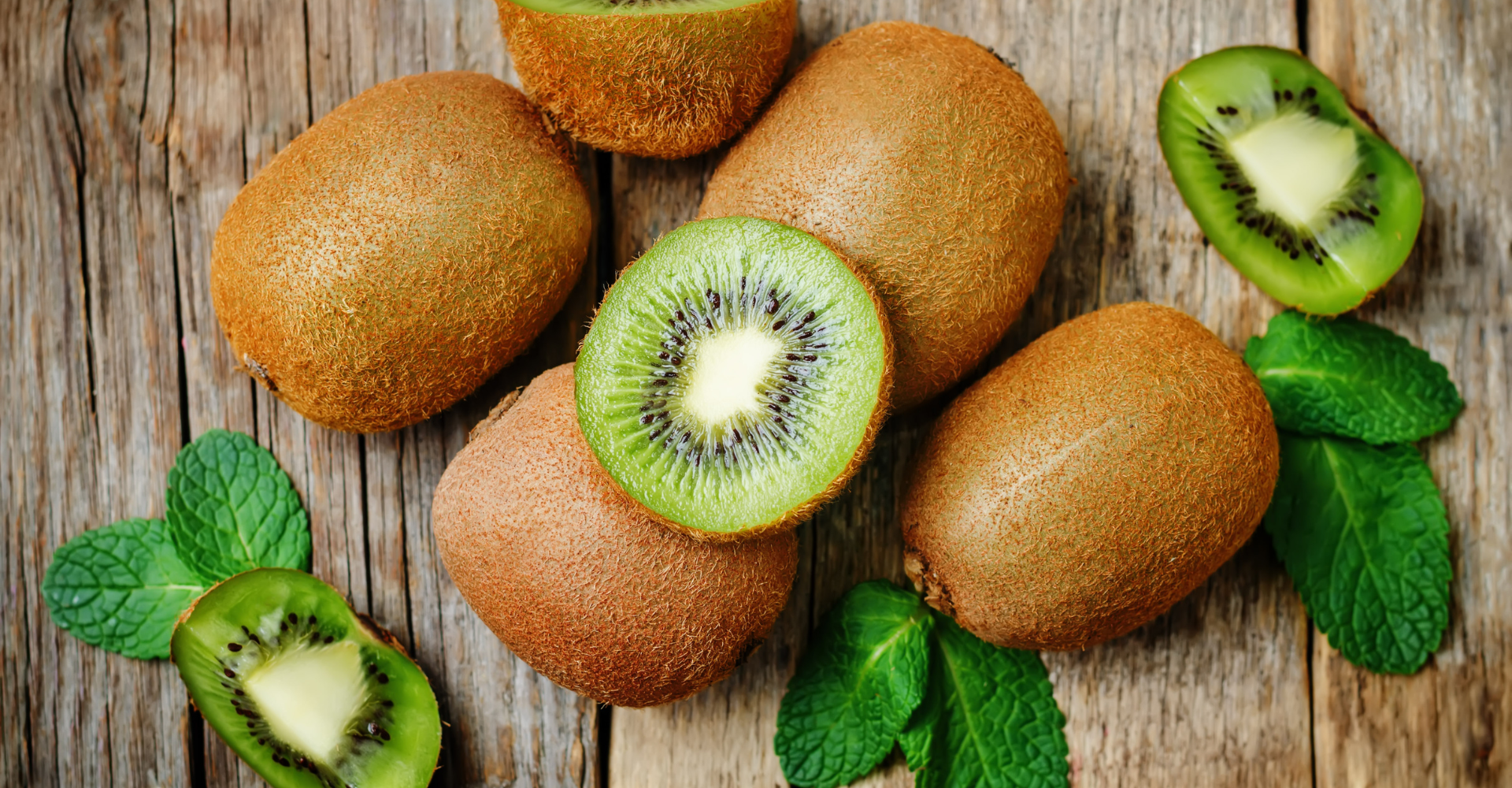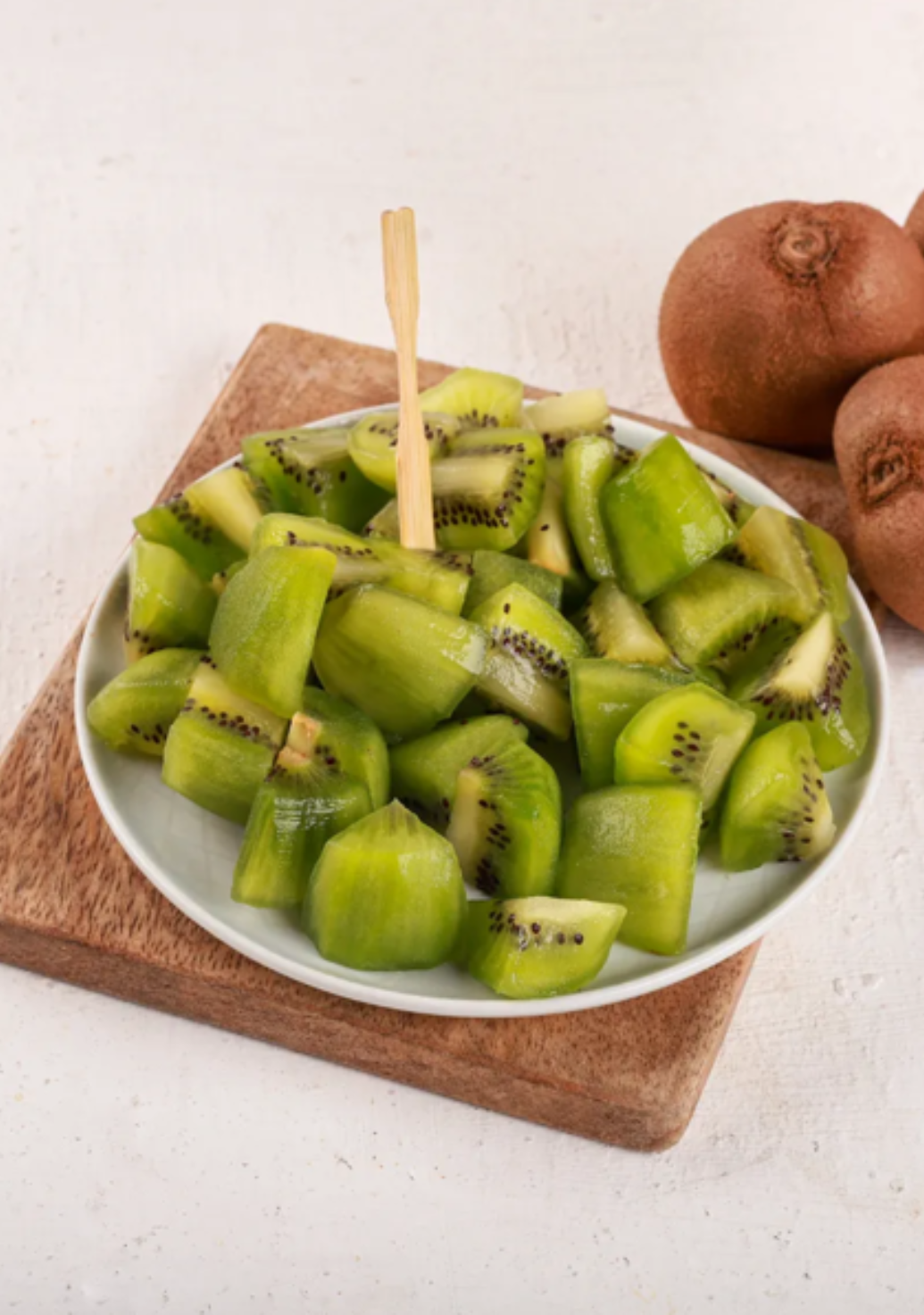
For a better and faster shopping experience, download app
Unkown

How Kiwi Improves Digestion Naturally
Introduction
How kiwi improves digestion naturally might surprise you. This tiny, vibrant fruit is more than just a tangy snack—it’s packed with digestive benefits that can keep your gut happy and regular. From its high fiber content to the unique digestive enzyme actinidin, kiwi offers a natural solution for constipation, bloating, and overall gut health. Let’s dive into why this small fruit has a big impact on digestion and how you can include it in your daily routine.
1. Rich Source of Dietary Fiber
Kiwi is loaded with both soluble and insoluble fiber. Soluble fiber forms a gel in the digestive tract, slowing digestion to improve nutrient absorption, while insoluble fiber adds bulk to stool, preventing constipation. A single kiwi provides around 2–3 grams of fiber, which contributes significantly to your daily intake. Regular consumption can support smooth bowel movements, reduce bloating, and keep your digestive system on track.
2. Contains Actinidin: A Unique Digestive Enzyme
Actinidin is a proteolytic enzyme found naturally in kiwi. It helps break down proteins into amino acids more efficiently, making digestion smoother. Unlike other fruits, kiwi’s actinidin can assist in digesting heavier meals, such as dairy or legumes, reducing discomfort like gas or indigestion. For anyone with sensitive digestion, incorporating kiwi after protein-rich meals can be a game-changer.
3. Supports Gut Health
Kiwi not only aids digestion mechanically through fiber but also nurtures a healthy gut microbiome. The fiber acts as prebiotics, feeding beneficial bacteria in the gut. A balanced gut microbiome is crucial for digestion, immunity, and even mental health. By promoting healthy bacteria, kiwi contributes to long-term gut wellness and can reduce the risk of digestive disorders.
4. Helps Prevent Constipation
Constipation is often caused by a low-fiber diet or sluggish digestion. Kiwi acts as a natural laxative thanks to its combination of fiber and water content. Studies have shown that regular kiwi consumption can improve stool frequency and consistency, making it one of the most effective natural remedies for occasional constipation.
5. Hydration and Smooth Digestion
Kiwi has a high water content, which aids digestion by softening stool and facilitating its movement through the colon. Proper hydration combined with fiber intake ensures that your bowel movements remain regular without discomfort. This makes kiwi an ideal fruit for those who struggle with dry or hard stools.
6. Anti-Inflammatory Properties for Gut Comfort
Kiwi contains antioxidants and vitamins such as vitamin C and E that combat inflammation in the digestive tract. Chronic inflammation can disrupt normal gut function and lead to discomfort. Including kiwi in your diet helps reduce gut inflammation and supports a calm, balanced digestive system.
7. Natural Remedy for Irritable Bowel Syndrome (IBS)
Some studies suggest that kiwi can relieve mild symptoms of IBS, such as bloating, constipation, and abdominal discomfort. Its fiber and actinidin enzyme combination makes it gentle yet effective for sensitive stomachs, offering a natural alternative to harsh laxatives or over-the-counter medications.
8. Enhances Nutrient Absorption
Efficient digestion is not just about regular bowel movements—it’s also about absorbing nutrients. The actinidin enzyme in kiwi helps break down proteins into amino acids that are easier to absorb. This means that the vitamins, minerals, and antioxidants in your meals are utilized more effectively, giving your body the fuel it needs for energy and vitality.
9. Easy to Include in Your Diet
Kiwi is versatile and easy to add to meals or snacks. Enjoy it fresh, sliced into your morning smoothie, tossed into fruit salads, or blended with yogurt. A daily serving of 1–2 kiwis is enough to see noticeable benefits for digestion without overloading your diet.
10. Delicious, Low-Calorie Digestive Aid
Kiwi is not only functional but also delicious and low in calories. Unlike some high-fiber foods that can feel heavy or hard to digest, kiwi is light, tangy, and refreshing. This makes it a guilt-free addition to your daily routine while keeping your gut healthy and regular.
FAQ Section
Q1. How much kiwi should I eat daily for digestion?
A: 1–2 medium kiwis per day are sufficient to support digestion and maintain regular bowel movements.
Q2. Can kiwi help with constipation?
A: Yes! Kiwi’s high fiber content, water content, and actinidin enzyme work together to relieve occasional constipation naturally.
Q3. Is kiwi safe for sensitive stomachs?
A: Generally, yes. Kiwi is gentle on the digestive system and can even help soothe mild digestive discomfort. However, those with kiwi allergies should avoid it.
Q4. Can kiwi improve gut microbiome health?
A: Absolutely. Kiwi acts as a prebiotic, feeding beneficial gut bacteria and promoting a healthy microbiome.
Q5. Can kiwi replace laxatives?
A: For mild constipation, kiwi is an effective natural alternative. For chronic issues, consult a healthcare professional.
How to Add Kiwi to Your Diet for Digestive Health
- Morning Boost: Blend kiwi with yogurt, oats, and a teaspoon of chia seeds for a fiber-packed smoothie.
- Fruit Salad: Combine kiwi with papaya, pineapple, and berries to support digestion and add variety.
- Post-Meal Snack: Eat a kiwi after protein-rich meals to aid digestion naturally.
- Kiwi Pops: Freeze kiwi chunks for a refreshing, digestive-friendly snack.
Conclusion
Kiwi is more than just a tasty, tangy fruit—it’s a natural powerhouse for your digestive system. Packed with fiber, water, and the unique actinidin enzyme, kiwi helps prevent constipation, improves nutrient absorption, supports gut microbiome health, and reduces digestive discomfort. Including kiwi in your daily routine is a simple, delicious, and natural way to maintain regular bowel movements and overall gut health.
So the next time you reach for a snack, remember that this small fruit can have a big impact on your digestion. A kiwi a day can keep your gut happy, healthy, and balanced—without the need for medicine.







![Kiwi Green [Imported]img 4 Kiwi Green [Imported]img 4](https://im.pluckk.in/unsafe/1053x0/uploads/new_sku_designs_v3/242221220AF/4.jpg)
![Kiwi Green [Imported]img 1 Kiwi Green [Imported]img 1](https://im.pluckk.in/unsafe/1053x0/uploads/new_sku_designs_v3/242221220AF/1.jpg)
![Kiwi Green [Imported]img 5 Kiwi Green [Imported]img 5](https://im.pluckk.in/unsafe/1035x0/uploads/27814-vertical-images-sku-48.jpg)
![Kiwi Green [Imported]img 2 Kiwi Green [Imported]img 2](https://im.pluckk.in/unsafe/1053x0/uploads/new_sku_designs_v3/242221220AF/2.jpg)
![Kiwi Green [Imported]img 3 Kiwi Green [Imported]img 3](https://im.pluckk.in/unsafe/1053x0/uploads/new_sku_designs_v3/242221220AF/3.jpg)



